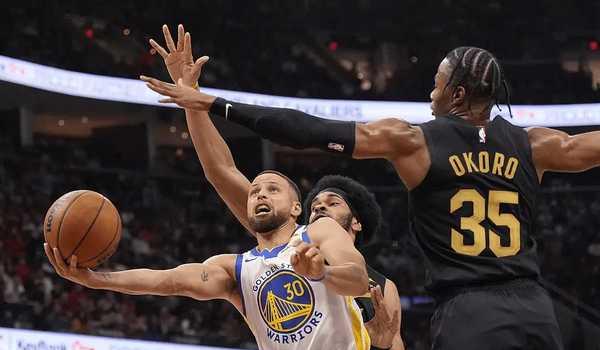The Psychological Impact of Stephen Curry's Three-Point Shooting
NBA player Chris Paul’s observation that Curry’s three-point shooting can make opponents ‘forget how to play defense’ reveals the unique psychological pressure Curry creates through his unprecedented shooting ability and constant off-ball movement.

Stephen Curry’s impact on NBA basketball defense goes far beyond traditional shooting metrics. As Golden State Warriors head coach Steve Kerr notes, unlike other elite shooters who rely primarily on catch-and-shoot opportunities, Curry’s offensive arsenal combines unparalleled shooting accuracy with relentless off-ball movement that mentally exhausts defenders.
The numbers tell part of the story. In regular season games, Curry has made 1,462 pull-up three-pointers, far ahead of James Harden’s 1,776 and Damian Lillard’s 1,411. In playoff games, his 287 made pull-up threes dwarf Harden’s 272. But these statistics only hint at the psychological warfare Curry wages on defenses.
What makes defending Curry uniquely challenging is the constant mental processing required. Defenders must:
- Track his location even when he doesn’t have the ball
- Make split-second decisions about switching or fighting through screens
- Maintain focus despite fatigue from chasing him around multiple screens
- Coordinate with teammates while processing multiple defensive threats
- Deal with the deflating impact of his quick-trigger three-point barrages
Former NBA player Andre Iguodala described defending Curry as “terrifying” because of his ability to score from anywhere with minimal space. Even when teams execute their defensive game plan perfectly, Curry’s shooting prowess and quick release can render the best-laid strategies irrelevant.
The Warriors' offense amplifies this psychological pressure through designed actions that leverage Curry’s gravity. His teammates set multiple screens and misdirection plays, forcing defenders to process new information constantly while maintaining awareness of Curry’s location. This mental taxation compounds the physical fatigue of chasing him, leading to defensive breakdowns.
What separates Curry from other elite shooters is his ability to create his own three-point shots off the dribble. Over 39% of his three-pointers are unassisted, compared to only 8% for catch-and-shoot specialists. This self-creation ability means defenses can never relax, as Curry can punish even the slightest lapse in concentration with a quick-trigger three.
The cumulative psychological effect often manifests in what Chris Paul described - defenders becoming mentally overwhelmed and forgetting fundamental defensive principles. This is particularly evident in Curry’s signature scoring bursts, where he can unleash multiple three-pointers in quick succession, devastating opponent morale and disrupting their defensive cohesion.
Beyond individual games, Curry’s impact resonates across the league. His revolutionary shooting has forced teams to rethink traditional defensive schemes and player development. Centers now must extend their defensive coverage to the three-point line, while guards face increased pressure to maintain stamina for full-court defensive attention.
In China’s basketball culture, this concept of psychological pressure in sports is called “心理阴影” (psychological shadow). Curry has cast such a shadow over the league that even elite defenders approach matchups with him carrying the mental weight of his shooting prowess. This psychological dimension, combined with his physical skills, has redefined modern basketball defense.